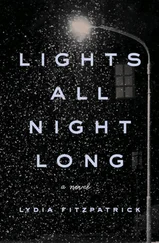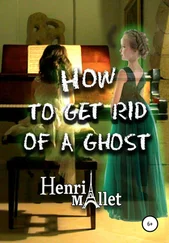Lydia Millet - Ghost Lights
Здесь есть возможность читать онлайн «Lydia Millet - Ghost Lights» весь текст электронной книги совершенно бесплатно (целиком полную версию без сокращений). В некоторых случаях можно слушать аудио, скачать через торрент в формате fb2 и присутствует краткое содержание. Издательство: W. W. Norton & Company, Жанр: Современная проза, на английском языке. Описание произведения, (предисловие) а так же отзывы посетителей доступны на портале библиотеки ЛибКат.
- Название:Ghost Lights
- Автор:
- Издательство:W. W. Norton & Company
- Жанр:
- Год:неизвестен
- ISBN:нет данных
- Рейтинг книги:5 / 5. Голосов: 1
-
Избранное:Добавить в избранное
- Отзывы:
-
Ваша оценка:
- 100
- 1
- 2
- 3
- 4
- 5
Ghost Lights: краткое содержание, описание и аннотация
Предлагаем к чтению аннотацию, описание, краткое содержание или предисловие (зависит от того, что написал сам автор книги «Ghost Lights»). Если вы не нашли необходимую информацию о книге — напишите в комментариях, мы постараемся отыскать её.
How the Dead Dream
Ghost Lights
Ghost Lights
Ghost Lights — читать онлайн бесплатно полную книгу (весь текст) целиком
Ниже представлен текст книги, разбитый по страницам. Система сохранения места последней прочитанной страницы, позволяет с удобством читать онлайн бесплатно книгу «Ghost Lights», без необходимости каждый раз заново искать на чём Вы остановились. Поставьте закладку, и сможете в любой момент перейти на страницу, на которой закончили чтение.
Интервал:
Закладка:
And come on. Please. Robert the Paralegal was, after all, what pop culture referred to as a boy toy .
Then again, it was always said, wasn’t it? — that women were incapable of sex without emotional involvement. This was held up as common knowledge. It relied on a conception of the weakness of women, that much was obvious, how they needed soft sentiment over the hardness of gratification, and further how childish and self-indulgent this was on their part. Women, you were led to believe, were seldom inclined toward physical intimacy without a projection of attachment — some association of their partner with an ideal or a fantasy of escape.
Was this empty? Or was there a core of truth to it?
He almost lost his grip on the wheel as he rounded a sharp corner, descending through the levels of the parking complex in a giddy spiral. There was the whole of life between him and Susan, the familiarity with each other that gave them meaning through time, but of course that whole life — that very same shared life and shared history — had removed his candidacy for objectification. At first the removal was slow, he might even have lost track of it, but now it was complete. He was not Robert and Robert was not him; she chose Robert, she wanted to fuck Robert.
What weighed him down, what was a heavy, awkward knowledge, was that it was exactly the quality of being known, of being yourself, that desexualized a person. It was time that all of them — all of them! In their millions! — stopped deceiving themselves and openly admitted what they knew: Love was not sex, sex was not love. They went together out of convention only, because the best sex came mostly before knowing, before real love was even possible.
He was angry as the yellow arm raised at the parking structure exit, as he drove beneath and made his right turn into traffic. A history of losing, he thought: he and Susan knew all about each other’s defeats and defects, the rifts and cracks, the craters — and understanding those losses, they had realized long ago, was not erotic. Not the kind of loss they knew, anyway, of atrophy and defeat. Still, he thought they had put it aside, or put it aside enough. Hadn’t they?
But for his loss to be held against him, he thought — cruel. He couldn’t help that loss.
They had gone on anyway, they still had sex fairly often, and it was decent. Tender, familiar. He liked it. But it was not glamorous, that much he had to admit, not epic, not breathtaking.
He was the third man, pathetic — a paper-pusher, a dim gray shade. Faded from relevance.
Heading in a dull haze back toward the freeway entrance off Lincoln — he had directed the rental car back toward his office without thinking — it dawned on him that he could not confront her, that all he had of his own was the secret of this knowledge; that he would have to take a new road, strike out and away, and like his wife command a private dominion.
Of course it hurt him. It was a cut, and sitting behind the wheel, staring ahead, he felt the lips of the cut stretch open.
3
They were due at Casey’s apartment for dinner that night. She cooked once a month for them and a few of her friends, a new routine since she’d moved into the place with the wheelchair-adapted kitchen. Sal the sociopath would be in attendance this particular evening, among more seasoned guests.
Before the incident with the paralegal Hal had considered the prospect and winced; it would be awkward and tedious to sit next to the guy for a whole long meal, the cop turned homeboy with his finger tattoos and his bogus argot of the ghetto. But now he felt relieved at the idea of Sal. To sit next to Sal instead of Susan would be liberating. He was more or less neutral when it came to Sal: Sal was impersonal, Sal had nothing on him. He was distasteful, sure, but distaste was such a trivial emotion — superficial, even. Hal could be generous to Sal, if only because Sal was not Susan. In his distance from Sal there was a beautiful freedom.
It was Susan’s betrayal that occupied his full attention now, from which tense attention he needed a break. It was keeping him anxious; the tendons in his neck hurt. He was worried by how different she might look to him in the light of his discovery, and by exactly how he might go about concealing this silent revolution. Because she knew him. He was not a cipher to her. And without concealment he would have nothing left.
He would be late, first off, he would be late because he would go to a bar beforehand. He seldom entered such establishments, seldom drank much at all, but the occasion called for it. She had momentum, she had velocity, she did . He did nothing. He existed, simply, going along as always. He had to keep pace with her, had to seek out events.
He found a place that was dark and mostly empty and quaffed two whiskeys in a short time, watching a television screen where a colorful cartoon raged of a fat, bulgy-eyed family with strange hairdos. He watched TV only at Casey’s instigation — always it was her choice what they watched and she did not watch this particular show — but he knew the program was popular. The sound was not on, which was frustrating at first but finally just as well. He watched slack-jawed, the whiskey dispersing in his bloodstream. Colors in my eyes, he thought, fields and fields. .
He let the picture blur and then sharpen again, blur and sharpen.
Did this mean he was getting cross-eyed? He tried to see his own eyes in the mirror behind the bar, but there was no room for his reflection between the bright libations.
He did not want to be stumbling drunk at Casey’s so he downed two large glasses of water in a row and drove slowly and carefully the few blocks to her house.
“Sorry. Office birthday party,” he said, when she ushered him in. This would explain his buzz, if it was even noticed. Others sat around in the living room, he saw, but Susan was not among them.
“Where’s your mother?”
“Bathroom,” said Casey, and went into the kitchen.
Of course she might be engaged in a devious activity there — the removal of a diaphragm, say.
Such thoughts were unworthy.
And anyway, they used condoms.
“We’re having a Thai soup,” said Casey. “Chicken coconut. Tom Ka Gai.”
“Sounds delicious.”
“I don’t know. Wait until you taste it.”
While she hovered at the stove he wandered into her living room, greeted her friends. There was a woman named Nancy who was also in a wheelchair and a tall man Casey knew from a class she’d taken at Santa Monica College, thick glasses and a receding hairline though he was only in his mid-twenties. Hal forgot his name every time: Adam? Andy?
“Addison,” said the man, obliging, and shook his hand.
“Can I get you a drink?” asked a voice behind him.
Susan.
Turning to look at her, he was surprised: she looked the same in her features but invisibly separate, as though she was cut off from him by a membrane. Instantly he superimposed the figure of Robert the Paralegal on her image — it happened without premeditation, almost violently, as though the guy had burst into the room.
Then the picture was gone, thankfully.
“Sure,” he said, and cleared his throat. “Just a beer. Already had a double at the office, so — thank you.”
“What was the occasion?”
Behind her Sal was in the doorway in his chair, chewing gum. He blew a large bubble and popped it.
“Linda’s birthday,” mumbled Hal, as Susan turned.
“Sal!” she said warmly, and Hal had a vision of her straddling him.
“Oh,” he said aloud, inadvertently. “Excuse me.”
He went to the bathroom, locked the door and sat down hard on the toilet seat. Grabbed the cool rail next to him and breathed deeply. Ridiculous. He was seeing her everywhere with spread legs. It had to be the whiskey. He was not used to drinking.
Читать дальшеИнтервал:
Закладка:
Похожие книги на «Ghost Lights»
Представляем Вашему вниманию похожие книги на «Ghost Lights» списком для выбора. Мы отобрали схожую по названию и смыслу литературу в надежде предоставить читателям больше вариантов отыскать новые, интересные, ещё непрочитанные произведения.
Обсуждение, отзывы о книге «Ghost Lights» и просто собственные мнения читателей. Оставьте ваши комментарии, напишите, что Вы думаете о произведении, его смысле или главных героях. Укажите что конкретно понравилось, а что нет, и почему Вы так считаете.












